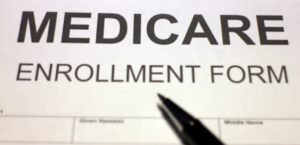People need to know your healthcare wishes and this advice from Medicare just makes sense.
Advice from Medicare states it’s never too soon to let trusted family members or friends know how you want to be taken care of — if you’re incapacitated and unable to speak for yourself. This involves writing what is called Advanced Directives. Medicare suggests that you do this well before you think you need to. Many people associate these directives with end-of-life situations but incapacitating accidents can happen at any age.
Advanced Directives let people know (1) what kind of care you want and (2) who you want to make the decisions for you. By stating this ahead of time, you remain in control of your healthcare decisions.
Here are some easy steps to creating your Advanced Directives:
- Download
Each state has its own forms for Advanced Directives. You can download the ones from your state here: http://www.caringinfo.org/i4a/pages/index.cfm?pageid=3289. Advanced Directives are a legal document but you don’t need a lawyer to create them.
- Research
Look into all the different kinds of treatment that might be called for if you are in a state where you can’t make a decision, whether this is because of being in a coma or in an advanced stage of dementia. Treatment options range from resuscitation to intubation to dialysis.
- Decide
It’s your decision. Maybe you do want to be resuscitated if your heart has stopped but you don’t want to be fed by tubes. Or you might want just palliative care. You also need to decide who will be your advocate. This is called a healthcare proxy, or durable power of attorney. You want someone you trust completely. It is a good idea to have more than one person.
- Confirm
Review your decisions and think about them for a while to be sure they are what you desire. Of course, you can change your Advance Directives at any time in the future, but it is wise to be clear about options and their consequences in the beginning. You also should speak with the person or people you have chosen as your healthcare proxy to be sure they will carry out your wishes.
- Communicate
Once you have the forms complete and the agreement of your advocates, you need to distribute the Advanced Directives to the appropriate people. You keep the original. Your physician or other healthcare providers should get a copy. Your advocate(s) needs a copy. You can also file a copy with your state’s health department.
- Protect
Keep your Advance Directives safe. Do not lock them in a safety deposit box as they will need to be accessed easily by the people who would be carrying out your wishes. Advice from Medicare also suggests carrying a card with your other forms of identification referring to your Advanced Directives.
Several organizations have created a handy guide for organizing the process. Visit https://www.cdc.gov/aging/pdf/acp-resources-public.pdf. Or, The Conversation Project has similar tools at https://bestmedicinenews.org/healthy-aging/plan-early-complete-advance-directive/.
Take Medicare’s advice and do this sooner than later. You want to be in control of your healthcare destiny.














